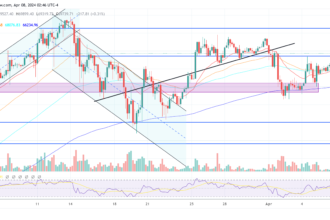The world has undergone many changes when it comes to doing business. Different business processes with different applications have swept the stage and led to digitization. Digitization has come a long way when it comes to managing operations, verifying transactions, and monitoring business performance. It has found many uses and is still being updated, innovated and changed today.
With digitization changing the way money transactions and payment systems are handled, digital currencies like Bitcoin now enable peer-to-peer transfers of value in a way that was previously impossible. The first of its kind, Bitcoin didn’t hit the market until just over a decade ago. In 2008, Bitcoin was proposed by Satoshi Nakamoto (an as-yet unknown pseudonym). Nakamoto posted a paper titled: Bitcoin: a peer-to-peer electronic money system to a mailing list in cryptography. However, Bitcoin would take a year to perform transactions within the blockchain.
Blockchain Technology
The word “blockchain” often denotes the rising trend of Bitcoin and other cryptocurrencies. This direct association is true, but even though it is at an early stage, blockchain technology for business has several advantages in business. Some applications may include wire transfers, trading, voting, etc.
A major determinant of blockchain is that the data stored in it is spread across computers everywhere, making it decentralized.
This decentralization is something that makes blockchain so innovative and dynamic. Traditional databases are centralized, usually managed and processed by a central administrator (i.e. the government), while the entire blockchain is transparent and verifies data through user consensus.
How does Blockchain help companies?
Blockchain Technology enables businesses and their consumers to track every transaction from start to finish without the need for a central server. Transactions executed using cryptocurrency can be segregated for greater transparency and security, benefiting both parties of the transaction.
Companies that would benefit from blockchain technology want to move away from paper-based storage and transmit a large amount of information. What is the Future of Blockchain Technology in Business?
1. Improved Supply Chain Management
Product development teams in the manufacturing industry have seen the difference blockchain has made for them. With one of the key features of blockchain transparency, transactions done here provide management teams with end-to-end documentation of a product’s history, from inception to the transfer of goods to warehouses.
Blockchain supports inventory management and is the perfect solution for real-time reporting of all transactions, from inventory to shipment. In addition, the risk of human error is reduced, especially since manual changes are excluded.
2. Improved Quality Assurance and Control
An accurate record of all your company’s transactions is imperative when developing and maintaining quality assurance. Fortunately, blockchain technology allows companies to identify the problems that arise in production and distribution processes and companies can track where the problem is occurring. In addition, the records blockchains have made auditing a breeze as it is much more accurate than the conventional method and much less time consuming. Blockchain technology enables accountants to automate day-to-day processes and provides new accounting automation solutions that meet strict regulatory requirements.
3. Faster business transaction processing at lower costs
More companies are now seeing the benefits of automation when it comes to their operations. One of the most prominent benefits of automation is the ease of transaction. Cryptocurrencies, such as Bitcoin, are powered by blockchain technology. There are several reasons why payment with Bitcoin has slowly been favored over traditional trades.
- User Autonomy – Bitcoin promises user autonomy, as its price does not depend on government policies.
- Pseudonymous Transactions – Blockchain transactions allow users to control who they transact with, which is lacking in traditional transactions. These usually require some identity verification, with an intermediary firmly responsible for the exchange.
- No Bank Fees – Bitcoin users are not subject to banking fees, meaning there is no minimum balance, no additional fees and the like.
- Secure Transactions – Bitcoin is not a physical currency, which means that thieves cannot take it from someone else unless they know the user’s private keys before the user’s. cryptocurrency wallet.
- Accessibility – Users can send and receive Bitcoins using only a smartphone or a computer without access to more traditional banking systems such as credit/debit cards.
The speed, cost, and security of Blockchain technology make transactions fast, simple and hassle-free, not to mention cheaper than traditional processes. As a result, operations teams can now focus on other critical areas of the business instead of overseeing, managing, and tracking business transactions.
4. Multiple contract executions
Another future we see for blockchain is how it can manage multiple contracts. Blockchain processes can do this with ease, from expirations to signage requirements and automatic renewals. Moreover, blockchain technology makes it possible to digitize and manage these agreements using a set of parameters and protocols instead of putting them on paper.
5. Increased Business Confidence
Blockchain offers a high degree of transparency. This transparency helps companies gain the trust of the public by making their data public. One of the main features of blockchain is that it is a distributed network where all members have copies of the same ledger. Trust is better established by removing an intermediary to process transactions and make everything public.
Business consumers can rest assured that they have witnesses to whatever data or transaction they have made. In addition, it is impossible to change data captured in the chain, making it an excellent technology for tracing transactions and goods in supply chain management. With blockchain, organizations can practice greater transparency and increase the efficiency of their processes.
6. Unparalleled Security
Another differentiator of blockchain technology is embedded in the blocks themselves. Each block stores data, a hash (or digital fingerprint) and part of the previous block’s hash encrypts the transaction to prevent fraud and unauthorized activity. The thing with blockchain is that every change in the block creates a completely different block. The previous block does not update, but instead changes its hash.
Suppose an attacker accidentally tries to commit a fraudulent act by double-spending or violating the protocols applicable to the network. In that case, there are fully validating nodes (also called full nodes) that can reject the transaction. Full nodes contain the complete copy of a blockchain transaction history. It passes new data and blocks the chain, verifies transactions and blocks transactions that do not follow the rules of the system.
Businesses can ensure that consumer data and transactions remain protected with blockchain technology because of this unique hash and end-to-end encryption system. By storing data in an immutable and secure ledgerbusinesses and customers can ensure that their information is protected from corruption.
7. No Downtime
Business systems must always have information and data to ensure continuous operation without fail. Unlike banks and other financial institutions, you can even transact outside office hours and on weekends. You also don’t have to worry about services being unavailable.
Since blockchain is a distributed network, it is stored in systems or computers in the network. However, no one has control over the network (which is located in different locations), unlike a centralized server. There are no downtime issues with blockchain, meaning 24/7 service is available for financial transactions and business functions or processes using the technology.
What’s in store for the future of Blockchain?
Blockchain has had an impact not only in business, but also in sectors such as finance, healthcare and law. But of course there is so much more to discover and develop with this technology, but one thing we know is that even end users who don’t know they are using it will see and realize its benefits (privacy and fast payments).
Being a decentralized system, people can expect it to run continuously in the background of businesses, laying the foundation for critical business processes and making operations more manageable and smooth.
Key learning points
There is no doubt that blockchain technology will only grow from now on. Here’s a quick rundown of the things blockchain technology helps businesses do:
- Supply chain management: Blockchain technology helps sort inventory and logging processes from start to finish.
- Better control and quality assurance: Running on a fully automated system makes identifying business issues and ways to improve them faster and easier.
- Fast business transactions: Cryptocurrencies do not run under centralized systems like banks and governments, removing the intermediary organization that slows down transactions and increases costs.
- Multiple contract executions: It enables companies to monitor and manage multiple contracts, a critical role in the operation. Agreements between parties are easier to process, put under specific parameters and protocols, enabling a more secure transaction.
This article listed some examples of how blockchain technology for businesses is slowly changing today’s operations. With ease of use and a more transparent and secure system, companies across industries can now reap the benefits of: benefits of blockchain technologyenabling business leaders, decision-makers and merchants to become familiar with the emerging blockchain technology.
* The information in this article and links are for general information purposes only and should not constitute financial or investment advice. We recommend that you do your own research or consult a professional before making any financial decisions. Please acknowledge that we are not responsible for any loss caused by any information on this website.














